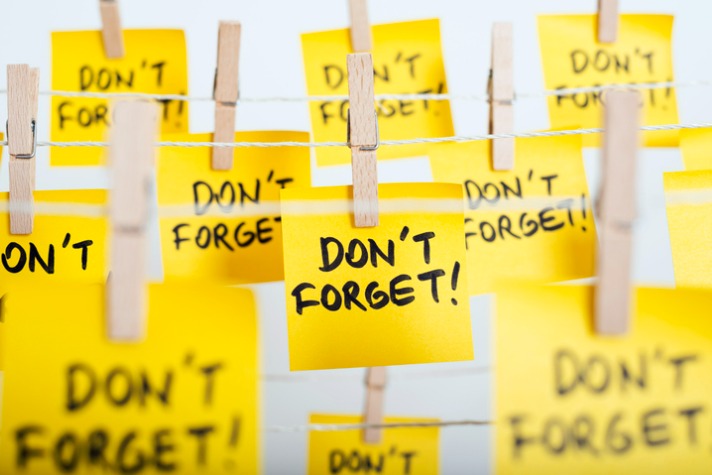Memory tricks
Published by MAXSolutions on August 09, 2023

Understanding how your memory works best can help you to recall important details. You might need to rote learn information for work, or study. You might want to save yourself time by having frequently used information like passwords and codes memorised rather than having to look them up.
This article describes several memory tricks that will help make information easy to recall and access. It might take a little time and creativity to set them up, but once they are working they will be invaluable.
Mnemonics are a great way to remember lots of detail. We use them everywhere. Here are some useful examples:
Acronyms: Kids are taught mnemonics to remember the order of the cardinal directions (Never Eat Soggy Weetbix) or the order of the planets in our solar system (My Very Excellent Mother Just Served Us Nine Pizzas) although these days she would have not served us Pizza as Pluto is only considered a dwarf planet.1
Associations: pairs new information with existing information. For example, if your new co-worker has the same name as your aunt.
Memory palace technique: helps you to remember random objects (say a shopping list that you cannot write down) by imagining them in different places in your house. You imagine yourself entering your house and seeing the first item at the entrance, then you pair the second item with something nearby. The third item is in a location near that and so on.
Rhymes: Putting the information you need to recall into a rhyming format will make it easier to remember. I before e except after c (unless your foreign neighbour Keith receives eight counterfeit beige sleighs from feisty caffeinated weightlifters.)
Song: we all know the alphabet thanks to a catchy tune; you can learn anything better if you make a song about it.
Repetition: repeating a memory (say when you are learning algebra), repeating the same thing (or solving many sums) strengthens the memory network. When studying it is recommended that you repeat what you’ve learned a day later, a week later, a month later and a couple of months later – you will then never forget it. This is explored in more detail in a previous blog featuring: Ebbinghaus’s Forgetting Curve3,.
Memory Networks. Memories, especially of events, form in networks. So, the memory of your wedding day also includes people who were there, how comfortable your shoes were, the taste of the food, the sound of the music, the emotions you experienced etc.
Tapping into one of those memories and really focusing on it will light up the memory network and related memories become easier to access.
If you are struggling to remember a specific thing, focusing on related memories will help. Placing yourself in the same emotional state you were in when you formed the memory will also help.
It can take a little time and effort to use some of these. So, you might like to save them for things you need to recall frequently. Although, the more you use them the better at them you’ll get.
References
1. https://solarsystem.nasa.gov/planets/dwarf-planets/pluto/overview/
2. Ebbinghaus, H. (2013). Memory: A contribution to experimental psychology. Annals of Neurosciences, 20(4) doi:https://doi.org/10.5214/ans.0972.7531.200408
3. How To Remember What You Learn For Longer | Alexander Young (alexanderfyoung.com)
Share
Tags
Found this useful?
Help and advice
Our blogs are about helping people seek the information that they need for their steps in the workforce.














_1.jpg)





























.jpeg)

















